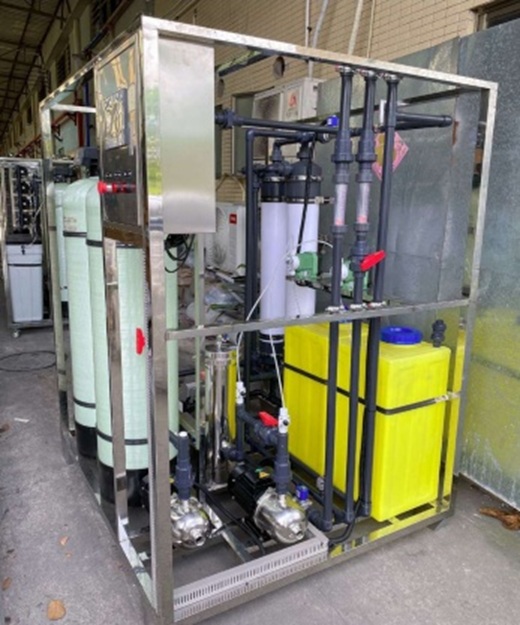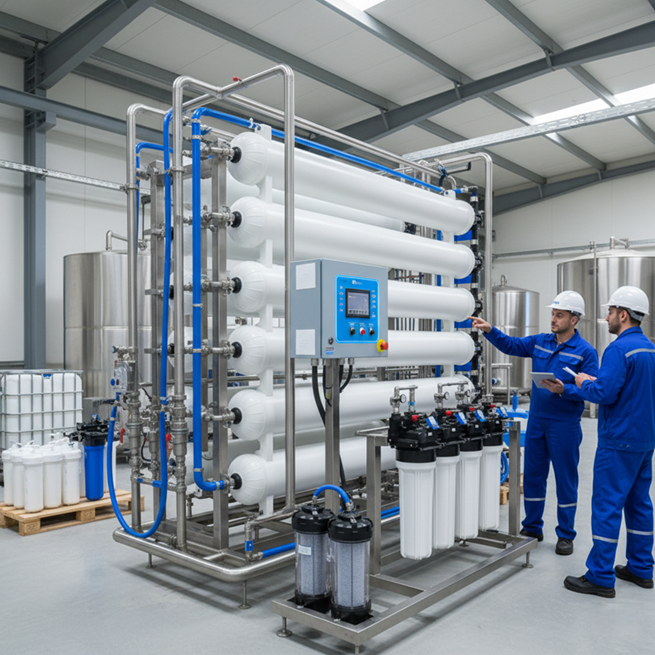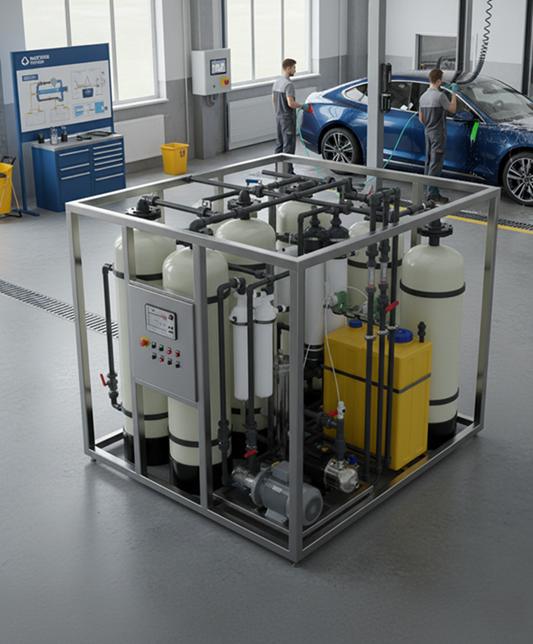
Water Recycling Stations in Automotive Service Centers
Water recycling stations in automotive service centers are specialized systems designed to treat and reuse wastewater generated from vehicle washes and maintenance operations. With increasing water scarcity and environmental challenges, these stations have emerged as vital components in promoting sustainable practices in the automotive industry. Their importance is underscored by growing regulatory pressures to reduce water consumption and minimize the discharge of harmful wastewater, making their implementation not only an environmentally responsible but also a strategic business decision for automotive service providers.
The evolution of water recycling in automotive maintenance is closely linked to technological advancements and regulatory frameworks. For example, closed-loop water recycling systems can recover up to 60% of wash water through advanced treatment processes, significantly reducing the water waste and pollution associated with traditional car wash methods.
Furthermore, mobile and modular water recycling solutions have been developed to meet diverse operational needs, enhancing the flexibility of businesses requiring portable or space-saving options. These innovations reflect a broader trend in the automotive industry toward adopting environmentally friendly practices that align with consumer expectations and regulatory requirements.
Despite the advantages, adopting water recycling systems is not without challenges. Companies must navigate complex regulatory compliance issues, address space constraints, and manage the financial implications of initial investments in these technologies. Furthermore, ensuring the reliability and quality of recycled water remains a major concern. Improper treatment can lead to contamination and operational disruption.
Read also: Wastewater Treatment Systems for Car Washes: Effective Solutions for Environmental Compliance
However, the long-term benefits of reduced water usage, operational efficiency, and enhanced environmental stewardship make water recycling stations a key component of modern automotive maintenance practices.
In short, water recycling stations are an integral part of the evolution of sustainable practices in automotive service centers, helping to conserve water resources and reduce environmental impact. As the automotive industry continues to adapt to regulatory and consumer demands, the role of these systems is expected to grow, paving the way for a more sustainable future in vehicle care and maintenance.
Types of Water Recycling Systems
Water recycling systems in car service centers play a crucial role in promoting sustainability and reducing water consumption during car wash operations. Different types of systems are designed to meet the needs of different facilities. That can be classified based on their operational methodologies and technological advancements.
Closed-Loop Water Recycling Systems
Closed-loop water recycling systems are among the most efficient options for car washes. These systems are designed to capture and reuse water from each wash and rinse cycle, significantly reducing water waste. Closed-loop technology can recycle up to 60% of wash water by using advanced treatment processes that remove contaminants. This method not only saves water but also reduces the environmental impact associated with chemical leakage.
Key Features
Closed-loop systems typically include several key components, such as settling tanks to remove heavy solids, oil-water separators to isolate contaminants, and advanced filtration units to ensure the treated water is clean and safe for reuse. The combination of mechanical and biological filtration methods enhances the efficiency of these systems. This allows them to maintain high water quality standards for continuous reuse.
Mobile Water Recycling Systems
Mobile water recycling systems meet the needs of on-the-go vehicle cleaning services, such as mobile car wash operators. These systems are designed for portability and ease of use, enabling operators to reclaim and reuse water while complying with environmental regulations.
Mobile units, such as the Alkota Vacuum Filtration System (VFS), incorporate automated features that simplify the recycling process, making them economical and efficient for mobile cleaning companies.
Advantages
The main advantage of mobile water recycling systems is their flexibility, allowing operators to operate in various locations without the need for extensive infrastructure. These systems can often be installed in trucks or trailers, making them ideal for businesses that require mobility.
Modular Water Recycling Systems
Modular water recycling systems, such as Instant Car Wash™ (ICW), provide a space-saving solution for vehicle wash operations. These systems are designed to be installed above ground, making them suitable for locations without sewerage networks. The modular design facilitates rapid installation and adaptation to existing wash racks.
Technologies Used in Water Recycling Plants
Overview of Water Recycling Technologies
Water recycling plants in automotive repair shops use a variety of technologies to effectively treat and reuse wastewater. These systems not only help reduce water consumption but also minimize environmental impact by ensuring adequate removal of contaminants before discharge or reuse. Key processes include filtration, chemical treatment, biological treatment, and advanced separation technologies.
Filtration Systems
Filtration is a critical first step in the water recycling process. It typically begins with prefiltration, where large impurities such as sand, leaves, and grit are removed using screens or sedimentation tanks to prevent clogging in the subsequent stages.
Post-treatment. After these initial filtrations, oils and greases are separated. This is often done using oil-water separators to isolate these contaminants before treatment begins. Advanced filtration methods include media filters, activated carbon filters, and centrifugal separators, which help remove fine particles and suspended solids from the water.
Chemical Treatment
Chemical treatment methods enhance the filtration process using coagulants, flocculant agents, and disinfectants to eliminate impurities and harmful microorganisms. This treatment is essential to ensure that the recycled water meets regulatory standards and is safe for reuse. In some systems, specific contaminants are targeted with specially designed chemical treatments. This is allowing for the effective removal of substances that might complicate water recycling efforts.
Biological Treatment
Biological treatment processes involve the use of microorganisms to break down organic materials. Such as grease and detergents, improving water quality for reuse. These systems may use advanced methods, including biological reactors. The bacteria digest the contaminants, resulting in cleaner water. This biological approach is often combined with other treatment technologies to enhance overall efficiency.
Advanced Treatment Technologies
Modern water recycling plants incorporate advanced technologies to achieve higher water quality standards. Technologies such as membrane filtration, ultraviolet disinfection, and reverse osmosis are becoming increasingly popular. For example, reverse osmosis systems can effectively remove salts and dissolved impurities, producing high-quality water suitable for various applications, including spot-free rinsing in car washes. New innovations, such as closed-circuit reverse osmosis (CCRO), are emerging, offering new methods of operation and improving the efficiency of water treatment processes.
Benefits of Water Recycling Plants
Cost Savings
Installing water recycling plants at auto repair shops can generate significant financial savings. By reusing water to clean vehicles or parts, companies can reduce waste disposal costs and minimize the cost of purchasing additional water from the main water network.
This can have a significant impact on operations that require large amounts of water, such as commercial vehicle washing. Water recycling systems can help mitigate ongoing overhead costs. Many operators report that the financial benefits of water recycling are apparent almost immediately after installation. This contributes to a strong return on investment over time.
Operational Efficiency
Water recycling systems enhance operational efficiency by allowing companies to process more vehicles in the same timeframe. This improvement can lead to increased productivity and reduced labor costs, as water supply and demand can be automated and better managed. With solutions tailored to the specific needs of automotive maintenance facilities. Companies can ensure more streamlined workflows and effective water management practices.
Environmental Benefits
Water recycling plants offer significant environmental benefits. By reducing the amount of water diverted from wildlife ecosystems. These systems help protect local flora and fauna while reducing pollution in surrounding natural water bodies.
Water recycling in car washes and maintenance facilities also reduces the discharge of contaminated wastewater. Reducing the overall environmental footprint of these operations. This not only supports community sustainability efforts but also aligns with broader environmental conservation goals.
Improved Health and Safety
Treating and recycling water used in automotive maintenance can significantly improve workplace safety. By removing harmful contaminants from water before reuse, companies create a safer environment for employees. This is reducing the risks associated with waterborne diseases. Additionally, proper management of hazardous waste generated during vehicle maintenance enhances workplace safety.
Sustainability and Community Impact
Integrating water recycling stations into automotive service centers contributes to the broader sustainability goals of the industry. By adopting these systems, companies not only reduce their water consumption but also demonstrate their commitment to responsible resource management. This practice can enhance automotive service providers’ reputations among environmentally conscious consumers, potentially attracting a customer base that values eco-friendly practices.
Furthermore, community-oriented water recycling efforts can help mitigate the water scarcity challenges faced by local residents, fostering goodwill and environmental responsibility.


























